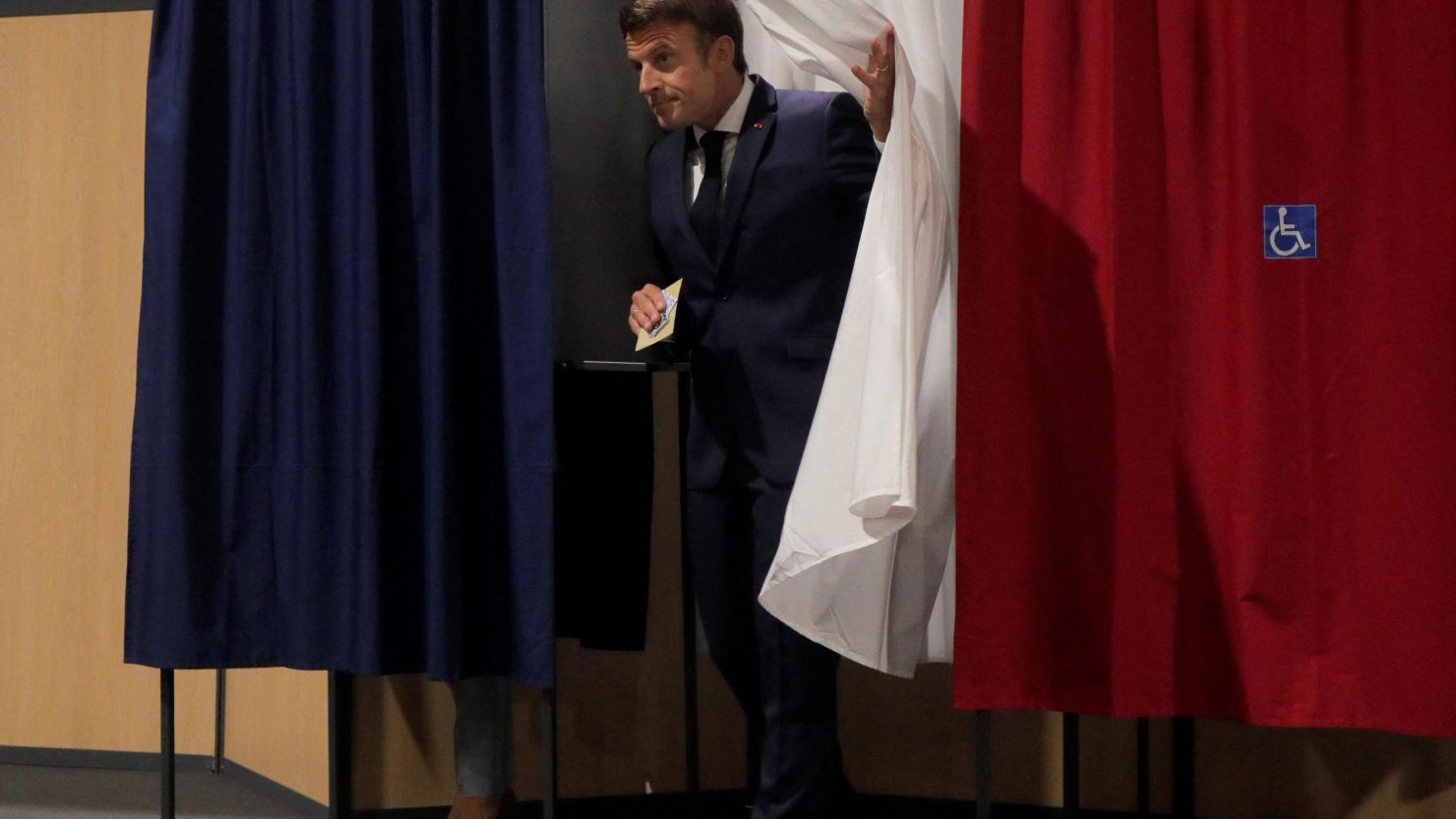French voters have denied newly re-elected centrist President Emmanuel Macron an absolute majority in parliament, limiting his hand in a second term.
Macron’s centrist alliance Ensemble! came first in Sunday’s second round of legislative elections, securing 245 out of a total of 577, according to final results released by the French interior ministry – more than any other political party.
However, it still fell short of the 289 seat threshold for an absolute majority in the National Assembly, France’s lower house.
Leftist coalition New Ecological and Social People’s Union (NUPES), a pan-left coalition led by far-left figure Jean-Luc Mélenchon, came in second with 131 seats, according to the interior ministry’s results.
That would make NUPES the main opposition force in the country, though the coalition is expected to be divided on some issues once in parliament.
“The collapse of the presidential party is total, and no majority is presented,” Mélenchon said earlier in the evening, remarking on preliminary results.
“We have achieved the political objective that we had set ourselves, in less than a month, to bring down the one who, with such arrogance, had twisted the arm of the whole country, who had been elected without knowing what for.”
On the other end of the political spectrum, Marine Le Pen’s far-right National Rally party meanwhile won a record 89 seats, putting it in third place.
“This group will be by far the largest in our political history,” said Le Pen, who was also re-elected as MP.
Both Pen’s and Mélenchon’s performances are the latest indication the Macron presides over a deeply divided country – where the French public are turning to the extreme right and left to voice their dissatisfaction with the status quo.
‘An unprecedented situation’
Macron, who won a second term in presidential elections in April, will now become the first sitting French president to not win a parliamentary majority since a 2000 electoral reform.
He now enters an unknown territory of negotiation and compromise, after five years of undisputed control, where his coalition is expected to try and form alliances with other political parties, including reaching out to the traditional right, which came fourth on Sunday.
France could be thrown into political paralysis if he fails to make alliances. But it could also mean Macron will struggle to pass his legislative agenda, including an unpopular plan to raise the retirement age, along with deeper European Union integration.
Finance Minister Bruno Le Maire called the outcome a “democratic shock,” Reuters reports, adding that if the other blocs failed to cooperate it “would block our capacity to reform and protect the French.”
“This is an unprecedented situation,” said French Prime Minister Elisabeth Borne, referring to the new “configuration” of power among rival parties resulting from the vote. “Never before has the National Assembly experienced such a configuration under the Fifth Republic.”
“As of tomorrow, we will work on building an action-oriented majority, there is no alternative to that coalition to guarantee our country stability and enact the necessary reforms,” she said.
Just like in the first round of the election earlier in June, the vote on Sunday was marked by a low voter turnout, with abstention over 53%.
The results are a noted departure from the large mandate Macron was given in the last 2017 elections. His top-down governing style, which Macron described as a “Jupeterian” presidency – a Roman god of gods – will now have to come down to earth and learn the art of consensus building.
Reporting contributed by Reuters


